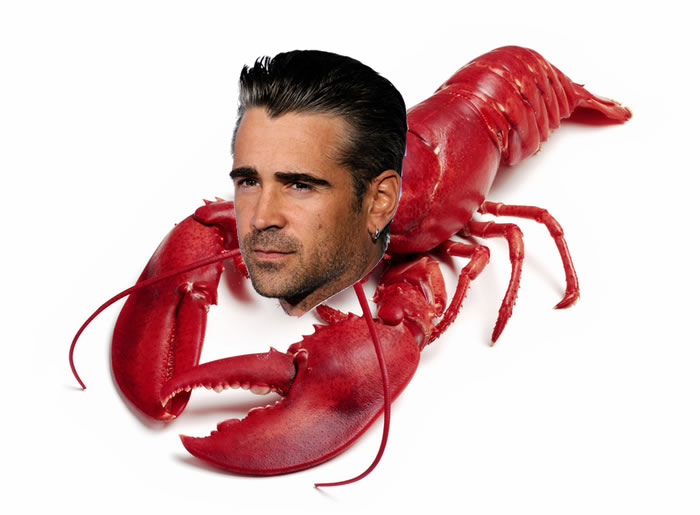My first thought on seeing the absurdist black comedy The Lobster was of The Prisoner, because the inmates of this glorious retreat (run by Olivia Colman, no less) are just that – prisoners, for 45 days anyway, if they are single. After that they are bizarrely turned into an animal of their own choosing. But then it also reminds me of Michael York and Jenny Agutter in Logan’s Run.
In that case they are running from the authorities because they have turned 30. In this case, it is because they are single and, for the most part, a fairly pathetic bunch of white middle-class whingers, played by the likes of Ben Whishaw, John C Reilly, Jessica Barden (“nosebleed woman”) and Ashley Jensen (“biscuit woman” who is so desperate for a partner she offers a range of sexual favours David turns down; her response is suicide rather than risk being dehumanised.)
They might be seen as the socially inept, many of whom were married and have not the first notion about how to function outside this august institution of societal conformity – the inference being that everyone who can cope and thereby engage with the opposite gender (no gay relationships on view) without a hiccup. That the also-rans are transformed into animals, especially dogs, suggests they are good for loyalty rather than anything constructive.
Colin Farrell’s eponymous (because his chosen animal is a lobster) character, known only as David, is deadpan, lacklustre and, frankly, boring. After 38 days of incarceration and putting up with the bizarre rituals of said establishment (including dances, dinners, assisted sexual simulations and more besides) escapes, having first transformed the cruel and unfeeling woman (Angeliki Papoulia) with whom he was briefly coupled with the help of a member of staff and who killed his brother (a border collie.)
David runs into the woods and inadvertently finds himself joining the very chaste loners led by Léa Seydoux’s equally cold-hearted bitch. The loners, effectively the underground resistance movement (they are required to dig their own graves) to the accepted normality of this parallel world, are, in turn, shot with tranquilliser darts by the inmates and imprisoned in exchange for extra days before joining Animal Farm (that’s my little joke, sorry.)
But I digress. The loners are not allowed to flirt or engage in any romance sexual contact, with mouth mutilation as punishment. This is possibly even worse than the world from which David has escaped, except love can form a secret world of its own, even there. Several loners, including David and the short-sighted woman (Rachel Weisz) with whom he forms a semaphore bond (literally) masquerade as happy couples to be in the city and go shopping in stylised and stilted mimicry of the truly happy (allegedly) couples policed in a shopping centre by the singles security guards.
I won’t reveal too much, not that plot is really the point here. Suffice it to say that the ending is as oblique as the rest of the film, thus demonstrating David’s indecisive nature and balancing of survival against following the path of true love: heart v head?
This doesn’t sound much like a comedy, does it? Or if it is, perhaps one of those strange sketch shows packed with non-sequiturs and in-jokes. You can of course view it as a vicious social satire focusing on society’s insistence that we conform to behavioural norms, but it runs deeper by virtue of neatly observed vignettes – until the ideas start wearing thin.
Much will depend on how closely you are attracted by the tenets of absurdism and surrealist humour, which polarises audiences like almost no other form of popular entertainment, but you pays your money and you takes your choice: some will love The Lobster and others will hate it, but worth noting that you don’t attract a cast like this for a small budget feature without doing something with which they wish to be associated. And if you didn’t like it first time around, maybe a second viewing is called for, to pick up on the cues you missed first time but may even find amusing on subsequent reviews.
Me? Perhaps I won’t bother, thanks all the same. Maybe I’ll head for some early Almodóvar instead… or even Farrell’s superior black comedy, In Bruges?













